#caussade
Text

11 notes
·
View notes
Text
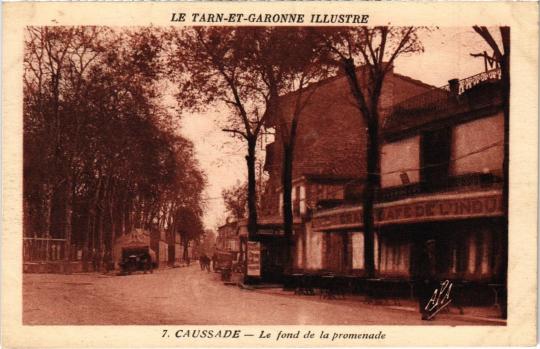
Street scene in Caussade, Quercy region of France
French vintage postcard
#vintage#tarjeta#france#old#briefkaart#quercy#street#postcard#photography#region#caussade#postal#carte postale#sepia#ephemera#historic#french#ansichtskarte#postkarte#scene#postkaart#photo
3 notes
·
View notes
Text
A Journey from Humiliation to Humility, by Corrado Pensa
Everyday Buddhist: A Journey from Humiliation to Humility, by Corrado Pensa http://wp.me/pFy3u-1An
I would like begin by reading a quote from Hubert Benoit, a French doctor who, amongst other things, studied, practised and experimented with Zen. He had a deep and creative way of conceptualising the core of the practice, and at one time he said, ‘All suffering, by humiliating us, modifies us. But this modification can be of two sorts that are radically opposed. If I struggle against humiliation…

View On WordPress
#Buddhist blog#Buddhist teachings#Jean-Pierre de Caussade#Photo by @BaganLodge#Photo by @KyotoDailyPhoto#religion#spirituality
3 notes
·
View notes
Text
To adore Jesus at the transfiguration, to love God in great things, is not so perfect an act of faith as to worship them in small ones, to worship Jesus on the cross, since faith is only truly living when what is seen and felt, deny and try to destroy it. Perfect faith emerges from this battle with the senses strengthened and triumphant.
Jean-Pierre de Caussade, The Sacrament of the Present Moment, pg. 64
0 notes
Text

Brown-throated parakeet (Eupsittula pertinax) in Caussade, Arrondissement de Cayenne, French Guiana
33 notes
·
View notes
Quote
Martha tried to please Jesus by cooking nice dishes, but Mary was content to be with Jesus in any way that He wished to give Himself to her; but when Mary sought Him in the garden according to the idea that she formed of Him, He eluded her by presenting Himself in the form of a gardener. The Apostles saw Jesus, but mistook Him for a phantom. God disguises Himself, therefore, to raise the soul to the state of pure faith, to teach it to find Him under every kind of appearance.
Jean-Pierre de Caussade, S.J. (The Sacrament of the Present Moment: A Spiritual Manifesto Reminding Us that it is Only in God that We Live, Move, and Have Our Being, 2.3.5)
#Christianity#Catholicism#awe#Jesus Christ#faith#Martha of Bethany#Mary of Bethany#Mary Magdalene#Twelve Apostles
184 notes
·
View notes
Text
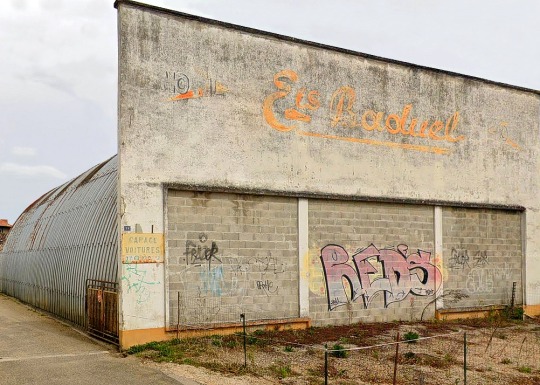
CAUSSADE - Tarn et Garonne
Les rouges ne passeront pas
13 notes
·
View notes
Text
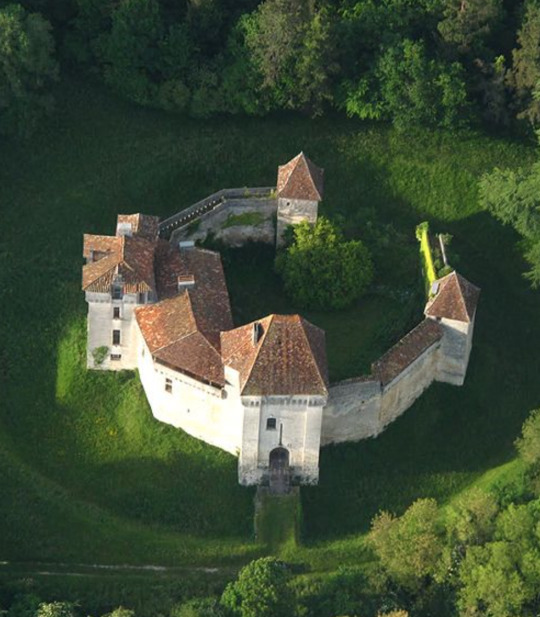
Château de Caussade Trélissac, Périgueux, Dordogne, Aquitaine, France
7 notes
·
View notes
Text
November 2023
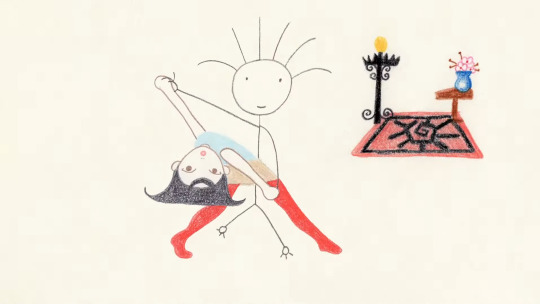


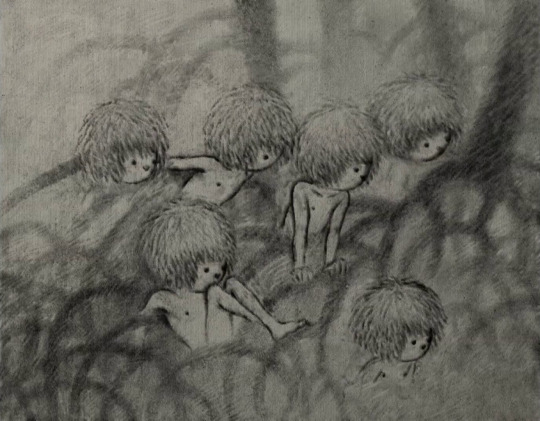



















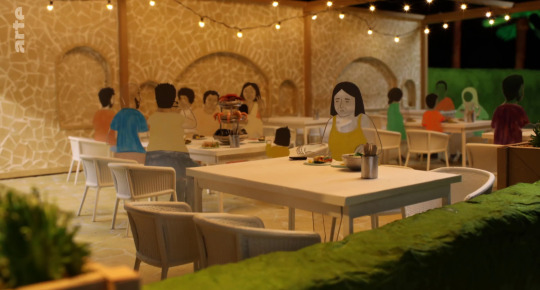
This month my favorite animated shorts were The purple season, Let's eat, Ghost Dogs, Bloeistraat 11, and My Mu
管好自己 - Zhong XIAN (2023), Watership Down - Martin Rosen (1978), My Mu - Sonnyé Lim (2023), The Purple Season - Clémence Bouchereau (2023), Let's eat - flip down yonder (2023), Tusalava - Len Lye (1929), Ghost Dogs - Joe Cappa (2020), Dinner Bell - Harumaki Gohan (2023), Bloeistraat 11 - Nienke Deutz (2018), SNIP - Terril Calder (2016), The Pink Jacket - Mónica Santos (2022), PLSTC - Laen Sanches (2022), Boles - Špela Čadež (2013), Dirty Girls - Michael Lucid (2000), Britannia - Joanna Quinn (1993), Post - Lukas Conway (2019), super ☆ business ☆ dancing ☆ night - Rob Gilliam (2016), Tehura - Wei Li (2022), Strike - Sergei Eisenstein (1925), Bound - Lilly Wachowski & Lana Wachowski (1996), Human Resources - Titouan Tellier &Trinidad Plass Caussade & Issac Wenzek (2022), Southbound Pachyderm - Lance Montoya (1995), Entropia - Flóra Anna Buda (2019), The Miracle - Nienke Deutz (2023)
#2023#things i've (re)watched this month#not animation but#Dirty Girls was so good!!!!!#Strike was great too#i need to watch more Eisenstein movies#animation
5 notes
·
View notes
Text
“O dear souls who read this, let me repeat to you: Sanctity will cost you no more; do what you are doing; suffer what you are suffering: it is only your heart that need be changed. By the heart we mean the will. This change, then, consists in willing what comes to us by the order of God. Yes, holiness of heart is a simple fiat, a simple disposition of conformity to the will of God. And what is easier? For who could not love so adorable and merciful a will? Let us love it, then, and through this love alone all within us will become divine.”
Absolute Surrender to Divine Providence, Jean Pierre de Caussade
4 notes
·
View notes
Text

"Are not five sparrows sold for two small coins? Yet not one of them has escaped the notice of God. Even the hairs of your head have all been counted. Do not be afraid. You are worth more than many sparrows." (Luke 12:6-7)
We often turn faith into an intellectual enterprise - a belief in a set of doctrines - creedal. It remains purely notional. Yet, while certainly faith includes all of these things, Christ calls us to something deeply personal - faith that is a radical and absolute trust in God. It is a gift of God and when it is perfected in "produces a certain indifference of soul and prepares us for all situations, all states and all persons we may meet. Faith is never unhappy, even when the senses are in a state of desolation. The soul ever maintains a living faith in God and in his action beyond the contrary appearances that darken the perception of the senses. The senses suddenly cry out in terror to the soul: 'Unhappy one, now you are lost, you have no resource left! and faith with a stronger voice replies at once 'Keep firm, advance and fear nothing.'" (Jean-Pierre De Caussade, S.J.)
9 notes
·
View notes
Text
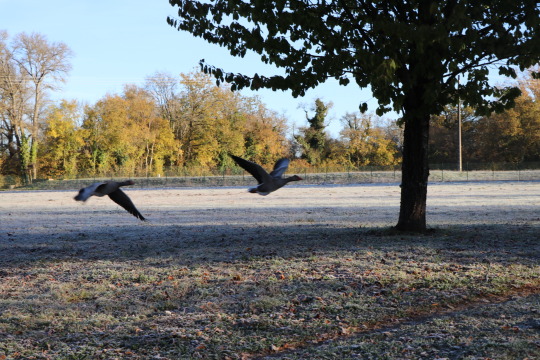
Pris sur le vif de l'envol
8 notes
·
View notes
Text
A golden age for aristocratic bastards

[Jean de Dunois, the Bastard of Orleans]
[..] The fifteenth century was the golden age of aristocratic bastards. The very fact that the word bâtard had honourable connotations in old French should alert us to its significance among the nobility but it seems that the late Middle Ages was a particularly favourable period for the illegitimate offspring of nobles for, although they could not inherit apanages or the propres of a family, no stigma attached to the bastard in higher noble circles. A survey of the higher civil and ecclesiastical offices held by bastards between 1345 and 1523 indicates an acceleration of the conquest of such positions in the first half of the fifteenth century and a great concentration in the second half, with 39 such posts held. There are a number of quite clear reasons for all this. Bastards actually bolstered the numbers within a noble family and were used to strengthen its influence either through marriage alliances or by the acquisition of administrative functions. They could be used to protect the influence of the legitimate members of the family without actually threatening their inheritance and, indeed, could be viewed as more trustworthy by their fathers since they posed no direct threat. As love children, they were often viewed as more handsome and personable than their legitimate siblings (the bastard of Dunois is the great case). Thus, as Harsgor reasonably argues, the expansion of their influence represented 'an aggrandisement of the sphere of influence of the nobility in general'. Although Contamine has observed a restriction of bastards' access to higher military commands at the end of the fifteenth century, aristocratic bastards played a significant part in the group of dominant figures, the 'masters of the kingdom', well into the sixteenth. Charles, last count of Armagnac, liberated from prison after the death of Louis XI, left a bastard, Pierre, who had a brilliant career at court under Charles VIII and Louis XII, was invested with the barony of Caussade, and whose legitimised son Georges, cardinal d'Armagnac, in turn became one of the great ecclesiastical statesmen of the sixteenth century. Georges in turn had a bastard daughter to whom La Caussade descended, while he made his nephew his vicar-general.
As far as the royal family itself was concerned, the kings of the fifteenth century tended to recognise only female bastards, using them for careful marriage alliances designed to assemble an affinity around the throne. Other great princely houses produced many more. The family of the Valois dukes of Burgundy produced not less than 68 bastards, many of whom filled important administrative posts and came to be 'a sort of bastardocracy'. Philip the Good alone sired 26 natural children, while there are spectacular cases like Jean II de Cleves with 63 bastards. One further explanation of their rise is the vast increase in military employment offered by the Hundred Years War. Roughly 4 per cent of the commands in the royal armies of the fifteenth century were held by aristocratic bastards.

[Antoine de Bourgogne, the Great Bastard of Burgundy]
While Harsgor argued that it was mainly the higher nobility that used bastards in this way, Charbonnier's study of Auvergne indicates the same pattern existed at the level of the middle and lower lordship. Among families like the Vernines and d'Estaing they were fully accepted and frequently found military employment and wielded their swords in the private feuds of their fathers. Well into the sixteenth century, we find bastards continuing their attachment to the lignage and fighting the feuds of their legitimate brothers. They replaced the earlier phenomenon of the younger sons who served their family but renounced a family of their own; few of them founded their own lignages, contrary to the pattern found among the higher nobility. However, they were mobilised in the service of the lignage, compensating the relative diminution of legitimate offspring, with the advantage of not dismantling the patrimony. However, from the middle of the sixteenth century, although there was no decline in the number of bastards at this level, there are signs that noble bastards were beginning to draw away from simple attachment to the service of their legitimate family and found lignages of their own.
The decline in recognised bastards took place after the first quarter of the sixteenth century, one of the signs being Francis I's reluctance to recognise illegitimate offspring. The Italian wars possibly provided less employment than the internal wars of the fifteenth century, but it seems just as likely that the main reason was the demographic expansion of the legitimate nobility and the squeeze on offices available for them generally. Added to that, both the Protestant and Catholic reforms took a dim view of sexual irregularity and sought to control it, while the higher robe and wealthy commoners had long viewed bastardy as an aristocratic foible to be avoided. For its part, the crown saw the expansion in the number of families exempt from taxes by the foundation of bastard noble lines as a danger. In 1600 and 1629, noble bastards lost their right to inherit nobility (this privilege was henceforth confined to the royal family).
David Potter- A History of France, 1460-1560- The Emergence of a Nation State
3 notes
·
View notes
Link
2 notes
·
View notes
Text
For those interested in the pre vatican II spiritual life, I highly recommend Father Bernard Uttley OSB. podcast series the spiritual life on SoundCloud platform on the Novus Ordo Watch channel. Recommend Traditional Catholic spiritual books: My Imitation of Christ by Thomas a Kempas, Total Abandonment to Divine Providence by Father Jean-Pierre de Caussade, Divine Intimacy by Father Gabriel of Saint Mary Magdalene O.C.D, True Devotion to Mary by St. Louis de Montfort, the Admirable Heart of Mary and the Sacred Heart of Jesus by St. John Eudes, the Glories of Mary by St. Alphonsus Liguori (honesty ANY of his books!) and the writings of St. Theresa of Avila and St. John of the Cross.

#traditional catholic resources#sedevacanist booksellers#traditional catholic booksellers#traditional catholic saints books#traditional catholic saints writings#traditional catholicism#sedevacantism#sedevacanist podcasts#sedevacanist resources
2 notes
·
View notes
Text

Turquoise Tanager (Tangara mexicana), Caussade, Arrondissement de Cayenne, French Guiana
23 notes
·
View notes